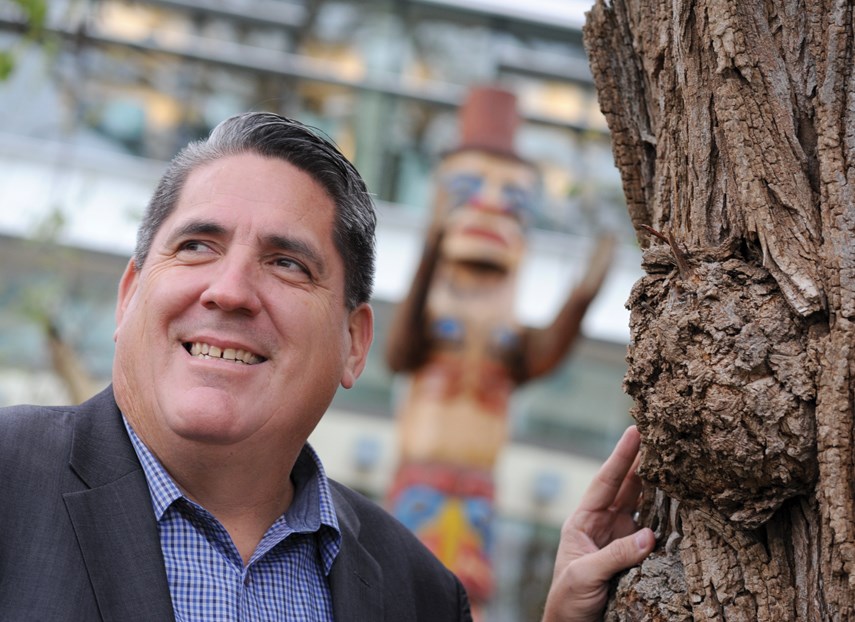When Brad Baker was growing up in North Vancouver, the history of the Sḵwx̱wú7mesh Úxwumixw (Squamish Nation) and Tsleil-Waututh Nation and their experiences within their traditional territories on the North Shore was not a subject that was broached in school.
That wasn’t unusual. Baker’s own father was a residential school survivor, who attended St. Paul’s Indian Residential School, where St. Thomas Aquinas Regional Secondary now stands. But acknowledging that past and incorporating Indigenous ways of knowledge into the classroom weren’t a priority in what was essentially a Euro-centric curriculum.
“None of us were really taught about our history, what Indigenous knowledge looks like,” said Baker, a Squamish Nation member whose ancestral name is Tsnomot.
As an educator of 26 years in North Vancouver, Baker has made it his mission to change that.
As SD44's director of Indigenous education, Baker has spent much of the past decade working to bring an Indigenous perspective into the school system. That’s involved creating an environment where Indigenous students can be supported, as well as providing resources to educate teachers and the wider community.
It’s slow work and progress doesn’t happen overnight. But change is happening, said Baker.
Starting next week (Dec. 1), Baker will be broadening that role as he starts a two-year secondment with the Ministry of Education as a newly created executive director of Indigenous education.
In that role, Baker will help guide all 60 school districts in the province.
“It’s a much-needed position,” said Baker. “And it fits in well with what I was doing in North Vancouver.”
Supporting Indigenous students and their success in school will remain the top priority, said Baker. Educating teachers on how to better incorporate Indigenous perspectives into their classrooms is another, and ensuring schools are free of outdated stereotypes and unacknowledged racism is equally important.
Having not just Indigenous students, but also non-Indigenous students, learn about the past is important, said Baker.
“It allows all of us as Canadians to have an understanding of our true history,” he said. “We want adults to do that too.”
Baker said events of the past year have brought that reality to the forefront.
When the unmarked graves of children were discovered at a Kamloops residential school site this year, it was a turning point, he said.
“We have known for years they were there. It brought it to the forefront.”
The experience allowed Indigenous people to speak about their past and also for non-Indigenous people to admit there was much about Canada’s history they didn’t know, said Baker.
“It definitely opened up the hearts and minds of all Canadians, which allows that space for brave dialogue to occur about what we know and what we don't know, but also where we need to go.”
Canada’s first National Day for Truth and Reconciliation this September was an emotional one, said Baker. It allowed residential school survivors to come forward and speak their truth and for them to feel a wide community of support behind them, including both Indigenous and non-Indigenous people.
Baker starts his new role with the Ministry of Education on Dec. 1 but won’t be leaving the community.
“I’m happy to be moving into a new position to continue to challenge our system.”




